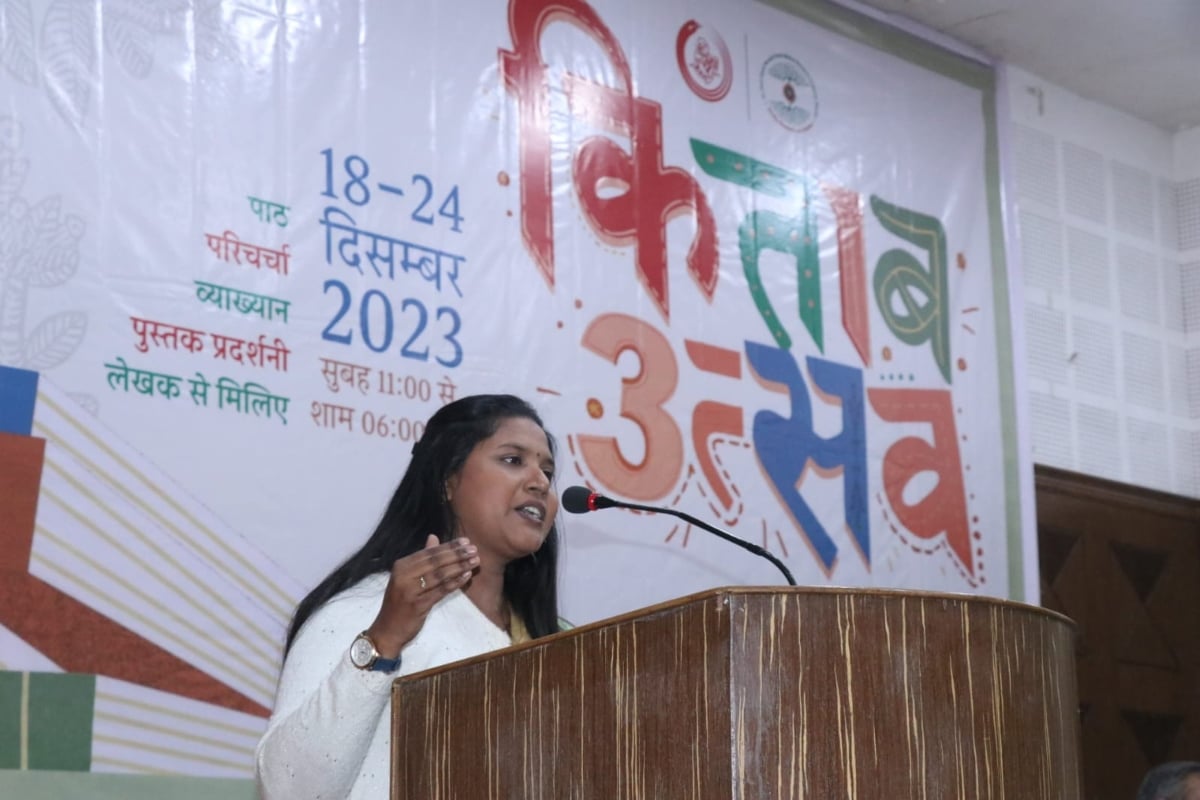Ranchi: Senior litterateur Mahadev Toppo, remembering Jharkhand thinker Sushila Samad, said that tribal There were educated people in the society from the beginning, but they were neglected. There was also an educated community which was illiterate. Only the educated community is not educated. In today’s time, people may be literate, but they are not educated. He was speaking at the ‘Book Festival’ organized under the joint aegis of Rajkamal Prakashan Group and Dr. Ramdayal Munda Tribal Welfare Research Institute. The first session of the second day was ‘Our Jharkhand, Our Pride’. In this session he said that our relationship with nature is so intimate and deep that we cannot live without it. There is an umbilical relationship between tribals and nature while non-tribals are alienated from this relationship. The tribal society which was united before 1850, later became separate.
Sushila Samad was the first tribal woman editor
Regarding Sushila Samad’s personality and her duties, senior litterateur Mahadev Toppo said that she had studied very hard. Sushila Samad belonged to the Munda community. He wrote about the tribal community in the magazines ‘Chandni’ and ‘Adivasi’. In 1936, she was influenced by the mainstream writings of her time. She was the first tribal woman editor. He tried to prepare the ground for writing about tribal society. He also built a women’s temple.
The second session was on tribal history writing: difficulties and possibilities.
The second session focused on the topic ‘Writing Tribal History: Difficulties and Possibilities’. In this session, Dr. Ravi Vajpayee, Dr. Sanjay Sinha, Dr. Inder Kumar Chaudhary and Anju Toppo expressed their opinions. Sanjay Singh said that there is an image about the tribal community that they live separate from the mainstream, but from the context of Jharkhand, many things are completely different, whatever the tribal group has been, their history is very traditional. It has been written. They have always been considered to have a different civilization and culture. I express my gratitude to Rajkamal Prakashan Group for organizing such a meaningful conversation.
Wild image of tribals is created in writing
Ranendra, Director of Dr. Ramdayal Munda Tribal Research Welfare Institute, said that the acceptance of dominance and the ruled in history still persists and we are carrying the burden of history being written from a European perspective. Only the wild image of tribals remains in the writings of anthropologists. It should not happen. Along with this, he said about Rajkamal Prakashan that Rajkamal Prakashan has been bringing good books not only on literature but also on other subjects and genres.
There is a shortage of researchers in writing tribal history
Ravi Vajpayee said that the society which did not get a chance to write its history did not face such problems. Anju Toppo said that it is not true that there has been less work in writing tribal history, but the writing was not done keeping in mind the context of tribal life. Like there has been no women tribal writing. There are possibilities in this area. Inder Kumar Chaudhary said that this event being organized under the joint aegis of Ram Dayal Munda Research Institute and Rajkamal Prakashan cannot be praised enough. History is also contemporary and it continues to be written decade after decade. There is a need to pay attention to the discussion of North versus South which has always been going on in the tribal context. Just as the history of India has various aspects, similarly the history of tribals also has various aspects, it is very difficult to bring it together. Oral history was also strong in India. History writing is dialogue. There is no history writer in the world who has not made some errors. The last speaker, senior historian Lalji Rana, said that people do not read history with as much interest as literature. There are many possibilities in writing tribal history, but there is a dearth of researchers.
Parvati Tirkey read poems
Anuj Lugun’s poetry collection ‘Agoshit Ulgulan’, Parvati Tirkey’s poetry collection ‘Phir Ugna’ and Jacinta Kerketta’s poetry collection ‘Ishwar Aur Bazaar’ were discussed. In this, Savitri Badaik, Pragya Gupta and Vinod Kumar discussed the characteristics of the poems of the three poets. In this session, Parvati Tirkey also read some poems from the collection.

